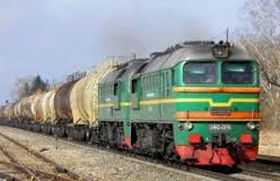Cargo, Latvia, Markets and Companies, Railways, Russia, Transport
International Internet Magazine. Baltic States news & analytics
Tuesday, 23.04.2024, 23:31
Cargo transportation by Latvian rail drops insignificantly in May
 Print version
Print version |
|---|
According to Ozols, the latest data about a time period until May 22 suggest that 2.64 mln tons have been carried by rail in May so far, which is 98% of the amount carried in the respective period last year, and it is not a significant drop.
"During spring and summer period there is a seasonal trend that cargo volumes drop because of a lower demand for energy resources," he said, adding that the regular work is as usual – cargos are being coordinated and transported.
At the same time, the company is working on attracting new cargos and keeping the current customers.
As reported, according to a recent article by the Reuters news agency, Russia's state-owned railway monopoly is refusing most requests to take cargo from Russia to ports in Latvia. Sources said that this might be because Latvia is among several eastern European states opposing Nord Stream 2, a Russian-led initiative to build a new gas pipeline under the Baltic Sea to Germany.
Asked for comment, the Russian railway company said it had not introduced any restrictions on transporting freight to Latvia.
Russia’s gas giant Gazprom has agreed with partners from Western Europe - British and Dutch Shell group, Austrian OMV and German Uniper and Wintershall - to build a new gas pipeline under the Baltic Sea to Germany that would bypass Ukraine, Poland and the Baltic countries. The new pipeline would double the capacity of the first Nord Stream gas pipeline connecting Russia and Germany. The project should be completed by late 2019.
The European Commission has also spoken reservedly about the gas pipeline project. In 2014, EU member states imported 53 percent of energy. One third of gas is transported to the EU from Russia and some of the bloc’s young member states from Eastern Europe are almost entirely reliant on Russian gas supplies. The Nord Stream pipeline creates the risk of concentrating 80 percent of the EU’s Russian gas imports on a single route and the European Commission is probing the project’s compliance with EU regulations.








 «The Baltic Course» Is Sold and Stays in Business!
«The Baltic Course» Is Sold and Stays in Business!

